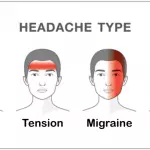The liver plays a crucial role in keeping the body’s systems balanced and maintained. Liver failure is especially frightening considering there is no way to keep the body operating if liver function is absent.
For instance, if the kidneys fail, dialysis can be used to keep the patient alive. If the lungs fail, a special ventilator can force the lungs to operate. However, nothing can stand in the place of the liver.
Medications are a popular cause of liver damage. While there are close to 1,000 medicines, drugs, and herbs that can injure the liver, ten in particular pose a significant threat. Each year, two thousand people experience liver failure in the United States. Around half of these situations are the direct result of medications.
10 Worst Medications for Your Liver
Following is a list of ten medications—both prescriptions and over-the-counter options—that have been proven to cause liver damage in rare cases.
1.) Amoxicillin Potassium Clavulanate (brand names: Augmentin, Augmentin ES-600, Augmentin XR)
Augmentin, an antibiotic commonly used to treat bronchitis, throat infections, and sinus infections, has been shown to cause liver injury. Damage to the liver can occur shortly after the medication is started. Signs of liver injury often show up after the patient stops the medication.
2.) Acetaminophen (brand names: Actamin, Anacin AF, Apra, Bromo Seltzer, Children’s Tylenol, Elixsure Fever/Pain, Little Fevers, Mapap, Medi-Tabs, Q-Pap, Silapap Childrens, Tactinal, Tempra Quicklets, Tycolene, Tylenol, Vitapap)
Acetaminophen accounts for a fairly large percentage – around 37% – of cases of liver failure. It is commonly used as an effective treatment for relieving pain and fevers but it is important to limit your dose to 2 grams a day or less and never exceed the maximum recommended dose of 4 grams a day. Acetaminophen is a popular ingredient in many over-the-counter medicines such as Nyquil, Dayquil, Theraflu, and more.
3.) Diclofenac Sr (brand names: Cambia, Cataflam, Dyloject, Voltaren, Voltaren SR, Zipsor, Zorvolex)
NSAIDs (non-steroidal anti-inflammatory drugs) are all capable of causing liver damage but it is most commonly associated with diclofenac. When taking diclofenac, liver damage can occur within weeks or months of using it. Although it is rare, certain individuals are especially susceptible to it for reasons we do not understand.
4.) Amiodarone (brand names: Cordarone, Pacerone)
This heart medication is used to help control the rhythm of the heart in people diagnosed with atrial fibrillation. Within a few weeks to months of taking it, damage to the liver cells can be observed.
5.) Allopurinol (brand names: Zyloprim, Lopurin, Aloprim)
This medicine is taken to help prevent gout attacks. Liver damage can occur quickly, within days or weeks, of using it.
6.) Methotrexate (brand names: Rheumatrex, Trexall)
This medicine is used for a variety of conditions such as ectopic pregnancy and rheumatoid arthritis. During treatment, liver levels are closely monitored due to its known side effects.
7.) Risperidone (brand names: RisperDAL, RisperDAL M) and Quetiapine (brand names: SEROquel, SEROquel XR)
These drugs are both used as antidepressants and antipsychotics. They are capable of blocking the flow of bile from the liver (a condition known as drug-induced cholestasis).
8.) All Seizure Medications
This entire class of drugs can cause damage to the liver. Once taking phenytoin (brand names: Dilantin, Phenytek) can damage the liver quickly after starting it. Also using alproate (brand name: Depacon), lamotrigine (brand names: LaMICtal, LaMICtal DC, LaMICtal XR) and carbamazepine, (brand names: Carbatrol ER, Epitol, Equetro, TEGretol, TEGretol CR) can also injure the liver, although the effects may not show up until later, usually weeks or months.
9.) Isoniazid (brand name: Nydrazid)
If your TB (tuberculosis) test comes back positive, your physician may suggest a 3 to 6 months prescription of isoniazid is also referred to as isonicotinylhydrazide or INH. INH is known to damage the liver soon after you begin taking it. It is important to avoid alcohol consumption during INH therapy.
10.) Azathioprine (brand names: Azasan, Imuran)
This medication affects the immune system. Typically, it is used to treat autoimmune hepatitis and Crohn’s disease. Liver damage can occur within weeks to months of taking this medicine.
Important to Mention…
You may be curious about statin drugs (medicines that help treat high cholesterol) and if they cause abnormal function of the liver. Although simvastatin (Zocor), lovastatin (Altoprev, Mevacor, Altocor), and atorvastatin (Lipitor) commonly affect the liver, the damage is usually insignificant.
Studies performed on animals have demonstrated that extremely high doses of statin medications may cause damage to the liver (hepatotoxicity). However, the doses of these drugs are not associated with significant liver damage. It is extremely rare for statins to cause injury to liver cells.
Please SHARE this toxic medication list with your friends and family.








Leave a Reply
Be the First to Comment!